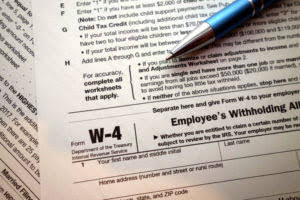
First, you must keep track of your employees’ attendance and leaves taken. Therefore payroll and bookkeeping are two different functions of a business. But when you get into the latter sections of this article, you will notice that these functions are interconnected.
- The straightforward answer is yes, a bookkeeper can indeed manage payroll functions.
- Many choose to outsource to a payroll service to ensure compliance and reduce errors.
- In our earlier section on the difference between a bookkeeper and an accountant, you recall that bookkeepers handle a lot of manual data entry.
- Below are some specific answers to common questions surrounding payroll in bookkeeping.
- Therefore payroll and bookkeeping are two different functions of a business.
- Through diligent accounting practices, businesses can maintain accurate records that reflect true payroll liabilities and expenses.
- If you need help with payroll processing, consider hiring a bookkeeper who can do payroll.
Corporate Payroll Management
Although they are not responsible for payroll, an internal bookkeeper could handle payroll if the business is small in volume and has few employees. But this can be stressful and overload the work for the given individual. In a large company, there are separate departments to handle each function individually so that their responsibilities are clearly specified. Therefore in a large company, payroll functions fall on to the HR department.
Bookkeeping vs Payroll
Chief among them is using good bookkeeping software to keep track of the business’s finances throughout the year. A Form 1099-NEC is a federally required annual statement that reports nonemployee compensation payments made of at least $600. You’ll debit $200 to the expense account since you are already in debt and credit the accounts payable liability account by $200 because you haven’t paid the interest yet.

First Month Bookkeeping Free!
If you need help with payroll processing, consider hiring a bookkeeper who can do payroll. They can save you time and money, and help you stay compliant with laws and regulations relevant to your business. First, the employer gathers information about the employee such as salary, taxes, and deductions.
Bookkeepers help business owners manage their finances by documenting transactions, paying and issuing invoices, generating reports, and recording accurate financial data. Bookkeepers can also deliver reports on your business’s financial standing. Bookkeepers can also provide additional services such as preparing taxes, preparing financial statements, and bookkeeping and payroll services creating budgets. For this reason, having CPA-led bookkeepers can provide great financial support and guidance. It involves accurate recording of transactions, understanding general ledger impacts, and being aware of the differences in accounting entries based on the system in use.
Should You Outsource Your Bookkeeping?
However, the payroll department might not have as much need for some financial statements (e.g., a statement of cash flows). The core function of a bookkeeper is to ensure that all bills are paid on time, transactions are recorded correctly, payroll runs on time and taxes are filed correctly. So if you’re looking to hire a bookkeeper, it is essential to create a bookkeeper job description that fills your recruitment funnel with ideal candidates as quickly as possible. Whereas bookkeeping focuses on the recording of financial transactions, payroll solely focuses on ensuring employees get paid. This involved calculating, processing, and distributing wages and benefits to employees. As part of the setup, small business owners may need to establish tax accounts with federal and state governments, including the governments of states where they have employees.

Focused management of payroll Accounting Periods and Methods costs and meticulous analysis contribute to robust cash flow and financial stability. Through diligent accounting practices, businesses can maintain accurate records that reflect true payroll liabilities and expenses. Whether you are an international enterprise or a growing business, managing payroll and bookkeeping on your own can feel like a daunting task.
How to Handle Payroll in Bookkeeping: Efficient Strategies for Accuracy and Compliance

It is a bookkeeper’s job to ensure documents and data are stored for easy retrieval and that there are no mistakes in the paperwork. Both are essential functions within a Bookkeeping for Veterinarians business, but they ultimately serve different purposes and involve the completion of different tasks. One of the greatest dangers to your business is a small error in your financial history that can ruin everything. You will have to learn how to read and understand the data that is provided for you, so it would also be in your favor if a good bookkeeper could give you direction as well. Bookkeeping is the regular monitoring of an organization’s financial transactions. Determining which tasks only a bookkeeper can help with and what type of qualifications your prospective employer needs is vital if you are considering hiring one.

Interest Incurred on Credit
Creating comprehensive financial statements is a multi-step process that begins with the initial recording of transactions. Bookkeepers should compile income statements, cash flow statements, and other relevant reports that reflect the business’s financial activities. Regular payroll audits are vital in confirming the accuracy of the financial records. During the audit, one should reconcile the payroll journal entry against the total wages reported on the income statement. This process helps to identify discrepancies early and maintain the integrity of financial statements.